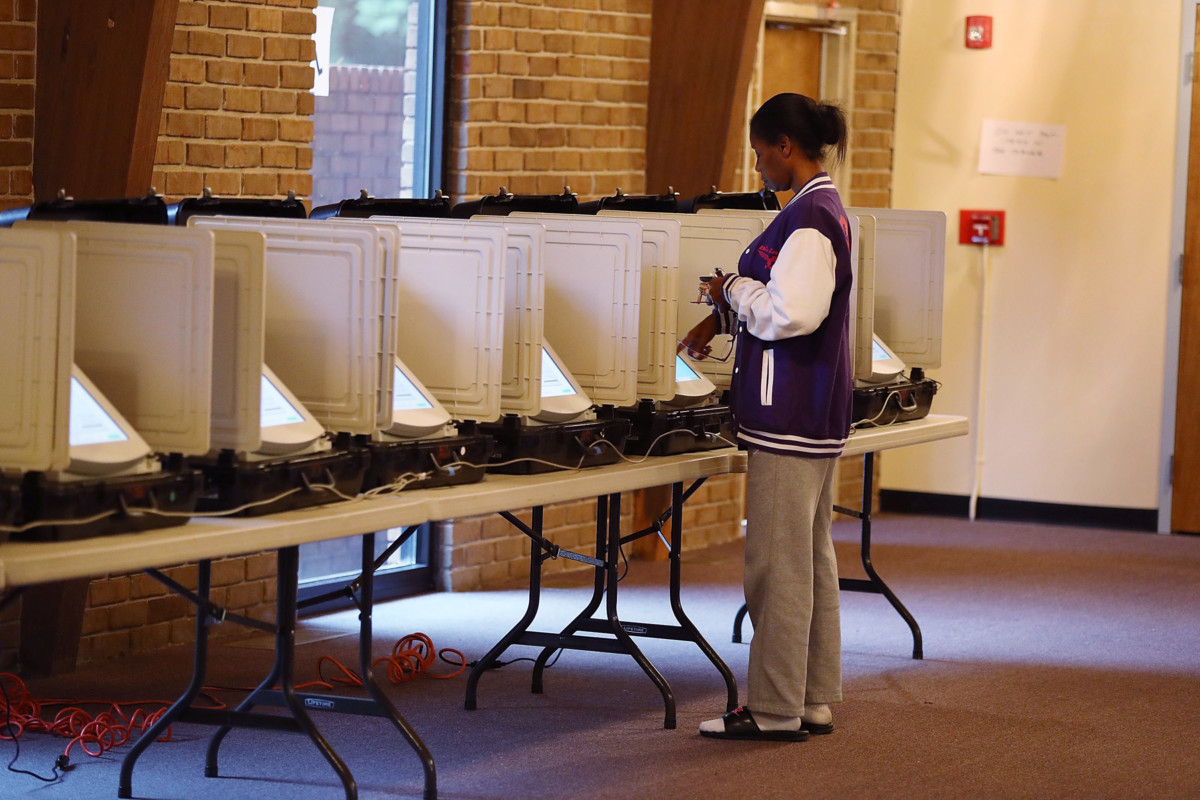Did you know that Truthout is a nonprofit and independently funded by readers like you? If you value what we do, please support our work with a donation.
Reports that Georgia is keeping 53,000 voter registrations on hold because of minor discrepancies have received widespread attention since last Monday. But in fact, the state has recently adopted a range of controversial voting practices. The combined effect is to put voters — especially racial minorities — at risk of disenfranchisement as the state’s hotly contested governor’s race approaches. Early voting begins today.
Below is a summary of the four major voting issues that have contributed to problems in the Peach State.
“Exact Match” Policy: In 2017, Georgia passed legislation requiring that information on voter registration forms match exactly with existing state records. Even a single digit or a misplaced hyphen could be enough to prevent registration and instead put the application on “pending” status. Georgia previously had a different version of this exact match process but agreed in 2017 to discontinue the practice after civil rights groups brought suit — only to reinstate a different version of exact match later that year.
Reports indicate that approximately 53,000 people are now on pending status — and a vastly disproportionate number of them are African-American: seventy percent of the pending list, compared to 32 percent of the population. Civil rights groups filed a lawsuit against the policy Thursday.
What does being on pending status mean for voters? If they do not provide the additional information needed to resolve the discrepancies within 26 months, their pending registrations will be canceled. Importantly, voters who show up on Election Day should be allowed to vote a regular ballot by providing ID at the polls and thus should not give up on voting just because their status is pending; however, the requirement could cause confusion on Election Day if voters are wrongly given provisional ballots or given other misinformation. The ID requirement could also cause problems for voters trying to vote by absentee ballot. For those voters who do not cast ballots in 2018, they are at risk of removal prior to 2020 if they do not get off pending status within 26 months of registering.
Aggressive Voter Purges: A recent Brennan Center report on purges nationwide found Georgia to be one of the most aggressive purgers. Between the 2012 and 2016 elections, it purged 1.5 million voters — twice as many as in the 2008 and 2012 cycles. All but three of the state’s 159 counties saw purge rates increase. And we recently released new data showing that the trend has continued over the past two years, during which the state has purged 10.6 percent of its voters.
Purge rates do not prove voters are being removed erroneously. But we also found that provisional ballots went up as the purge rate increased in Georgia, as well as in other jurisdictions that used to get extra scrutiny under the Voting Rights Act. This suggests more voters are showing up to the polls after having been purged because voters in those situations often get provisional ballots.
Voter Registration Drives Restricted: The governor’s race — which pits Secretary of State Brian Kemp against former state legislator Stacey Abrams — also recalls a controversial episode involving the secretary of state’s office and the New Georgia Project (NGP), a civic group founded by Abrams in 2013. Prior to the 2014 election, Kemp’s office launched an investigation into voter registration forms submitted by NGP. After investigating approximately 87,000 forms, NGP was eventually cleared of wrongdoing — but not until after the group’s voter registration drive was disrupted. The group filed a lawsuit against Kemp for failing to process approximately 40,000 voter registration forms submitted by the group. The lawsuit was dismissed in part because Kemp promised to ensure registration applications would be sent to counties.
Kemp, a Republican, was also criticized for political statements about voter registration drives. “[Y]ou know the Democrats are working hard, and all these stories about them, you know, registering all these minority voters that are out there and others that are sitting on the sidelines,” he said at the time. “If they can do that, they can win these elections in November.”
Polling Place Closures: Majority-black Randolph County, Georgia was sued for attempting to close seven of its nine polling sites. The county claimed a consultant had recommended the closures because of disability compliance issues. After a lawsuit, the county reversed course and kept the sites open.
The proposed polling place closures in a minority county were particularly concerning because in the past, similar tactics have been used to suppress minority votes. Prior to 2013, polling place changes in Georgia (and other areas with a history of discrimination) had to be precleared by the Department of Justice or a federal court to make sure they did not result in a rollback of minority voting rights. But after the Supreme Courts’ 2013 Shelby County decision, that protection no longer exists.
* * *
The competitive governor’s race will strain Georgia’s election system. Election officials should be transparent about what voters need to do to ensure their votes are counted – particularly those voters who are on pending status. If voters encounter problems, they can call 866-OUR-VOTE or go to 866OURVOTE.ORG to get help from Election Protection, a nonpartisan voter hotline.
Media that fights fascism
Truthout is funded almost entirely by readers — that’s why we can speak truth to power and cut against the mainstream narrative. But independent journalists at Truthout face mounting political repression under Trump.
We rely on your support to survive McCarthyist censorship. Please make a tax-deductible one-time or monthly donation.
